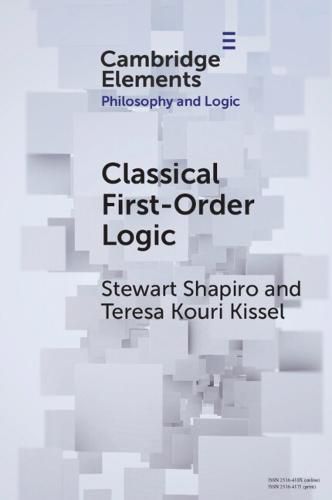Readings Newsletter
Become a Readings Member to make your shopping experience even easier.
Sign in or sign up for free!
You’re not far away from qualifying for FREE standard shipping within Australia
You’ve qualified for FREE standard shipping within Australia
The cart is loading…






One is often said to be reasoning well when they are reasoning logically. Many attempts to say what logical reasoning is have been proposed, but one commonly proposed system is first-order classical logic. This Element will examine the basics of first-order classical logic and discuss some surrounding philosophical issues. The first half of the Element develops a language for the system, as well as a proof theory and model theory. The authors provide theorems about the system they developed, such as unique readability and the Lindenbaum lemma. They also discuss the meta-theory for the system, and provide several results there, including proving soundness and completeness theorems. The second half of the Element compares first-order classical logic to other systems: classical higher order logic, intuitionistic logic, and several paraconsistent logics which reject the law of ex falso quodlibet.
$9.00 standard shipping within Australia
FREE standard shipping within Australia for orders over $100.00
Express & International shipping calculated at checkout
One is often said to be reasoning well when they are reasoning logically. Many attempts to say what logical reasoning is have been proposed, but one commonly proposed system is first-order classical logic. This Element will examine the basics of first-order classical logic and discuss some surrounding philosophical issues. The first half of the Element develops a language for the system, as well as a proof theory and model theory. The authors provide theorems about the system they developed, such as unique readability and the Lindenbaum lemma. They also discuss the meta-theory for the system, and provide several results there, including proving soundness and completeness theorems. The second half of the Element compares first-order classical logic to other systems: classical higher order logic, intuitionistic logic, and several paraconsistent logics which reject the law of ex falso quodlibet.